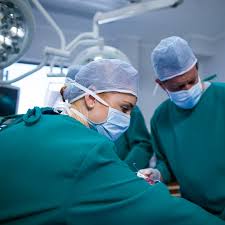During a consultation with a laparoscopic surgeon, you can expect the following:
- Medical History Review: The surgeon will review your medical history, including any previous surgeries, medical conditions, medications you are taking, and any allergies you may have. This information helps the surgeon understand your overall health and assess your suitability for laparoscopic surgery.
- Physical Examination: The surgeon will conduct a physical examination to evaluate your current health status, focusing on the area of concern related to the surgery. This examination helps the surgeon assess the specifics of your condition and may include checking vital signs, palpating the abdomen, or performing other relevant tests.
- Discussion of Symptoms: You will have the opportunity to discuss your symptoms or the reason for seeking surgical treatment. This discussion allows the surgeon to understand your concerns, clarify any uncertainties, and determine the most appropriate course of action.
- Explanation of Procedure: The surgeon will explain the laparoscopic procedure in detail, including how it is performed, the expected outcomes, potential risks and complications, and any alternative treatment options available. This information helps you make an informed decision about whether to proceed with the surgery.
- Questions and Answers: You are encouraged to ask any questions you may have about the procedure, recovery process, potential risks, or any other concerns you may have. The surgeon will provide clear and comprehensive answers to ensure you fully understand what to expect.
- Preoperative Instructions: If you decide to proceed with laparoscopic surgery, the surgeon will provide you with preoperative instructions to follow before the surgery. This may include dietary restrictions, medication adjustments, and other preparations to ensure a smooth surgical experience.
- Follow-up Plan: After the consultation, the surgeon may schedule additional appointments for further evaluation, preoperative testing, or surgical planning. They will also discuss the postoperative care plan and schedule follow-up appointments to monitor your progress after surgery.
Overall, a consultation with a laparoscopic surgeon is an opportunity for you to learn about your condition, explore treatment options, and establish a plan of care tailored to your individual needs and preferences. It's essential to communicate openly with your surgeon and ask any questions you may have to feel confident and informed about your decision regarding surgery.




.png)

Comments